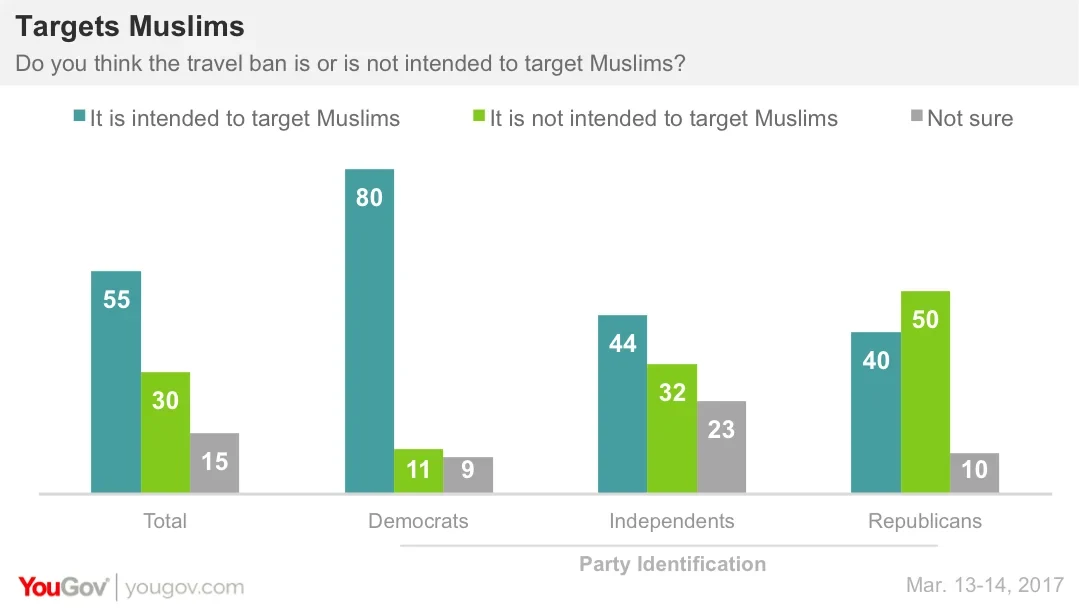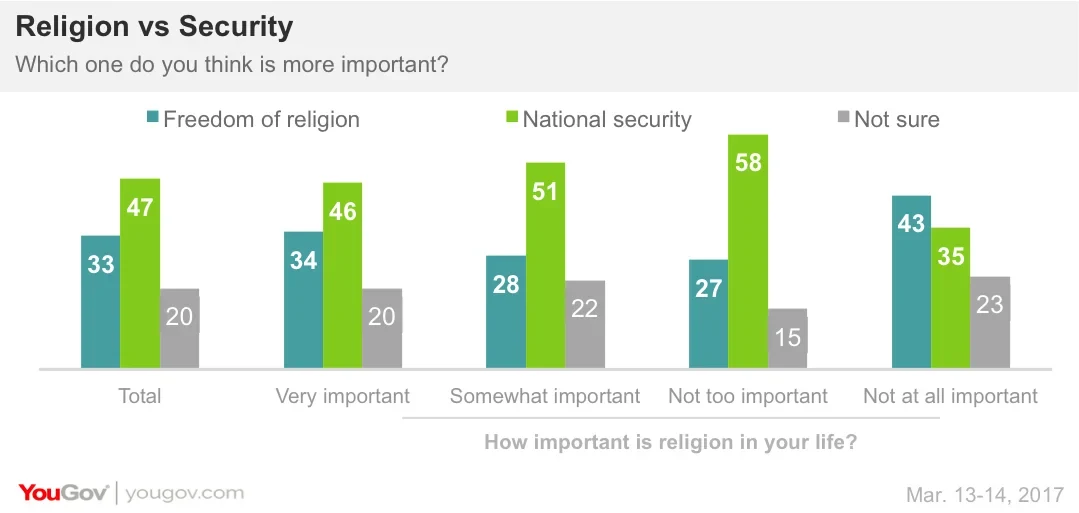For many Americans, President Trump's Executive Order banning travel to the United States from six predominantly Muslim countries and suspending the admission of refugees for 120 days is an issue of security. As is so common with many issues these days, the Executive Order is also an issue of partisanship.
A recent Economist/YouGov Poll found public support for the revised ban: 47% approved of it, 39% disapproved. Despite the administration's claims to the contrary, an even wider margin of Americans, 55% to 30%, think that the ban is meant to target Muslims.

Half of Republicans reject the idea that the ban targets Muslims, 40% of Republicans agree that it does. The ban is now under judicial review, and Americans agree two to one that the Courts have the authority to review it (Republican identifiers are divided on this).
The most religious respondents, the one in three who describe religion as “very important” in their daily lives, see Muslims as the intended target of the travel ban, but by only ten points, 46% to 36%. Those for whom religion is less important are even more likely to believe that the ban specifically targets Muslims. Those to whom religion is “not at all important” say the ban is targeting Muslims by 69% to 18% -- nearly four to one.
Partisanship appears more likely than religious importance when it comes to seeing the travel ban as a matter of security and not religion. When asked what is more important -- national security or freedom of religion – the public comes down on the side of national security. But the group one might expect would choose religious freedom, doesn't.
Those who say religion is very important in their daily lives say national security is more important than freedom of religion. The smaller group (21% of the public) which gives religion no importance at all in their daily lives thinks freedom of religion is more important. Those in the middle are the most likely to say national security is more important than freedom of religion.

The most religious Americans tend to be more Republican; more than a third of this group call themselves Republicans compared with just 14% of the least religious. Republicans choose national security over freedom of religion by three to one.







